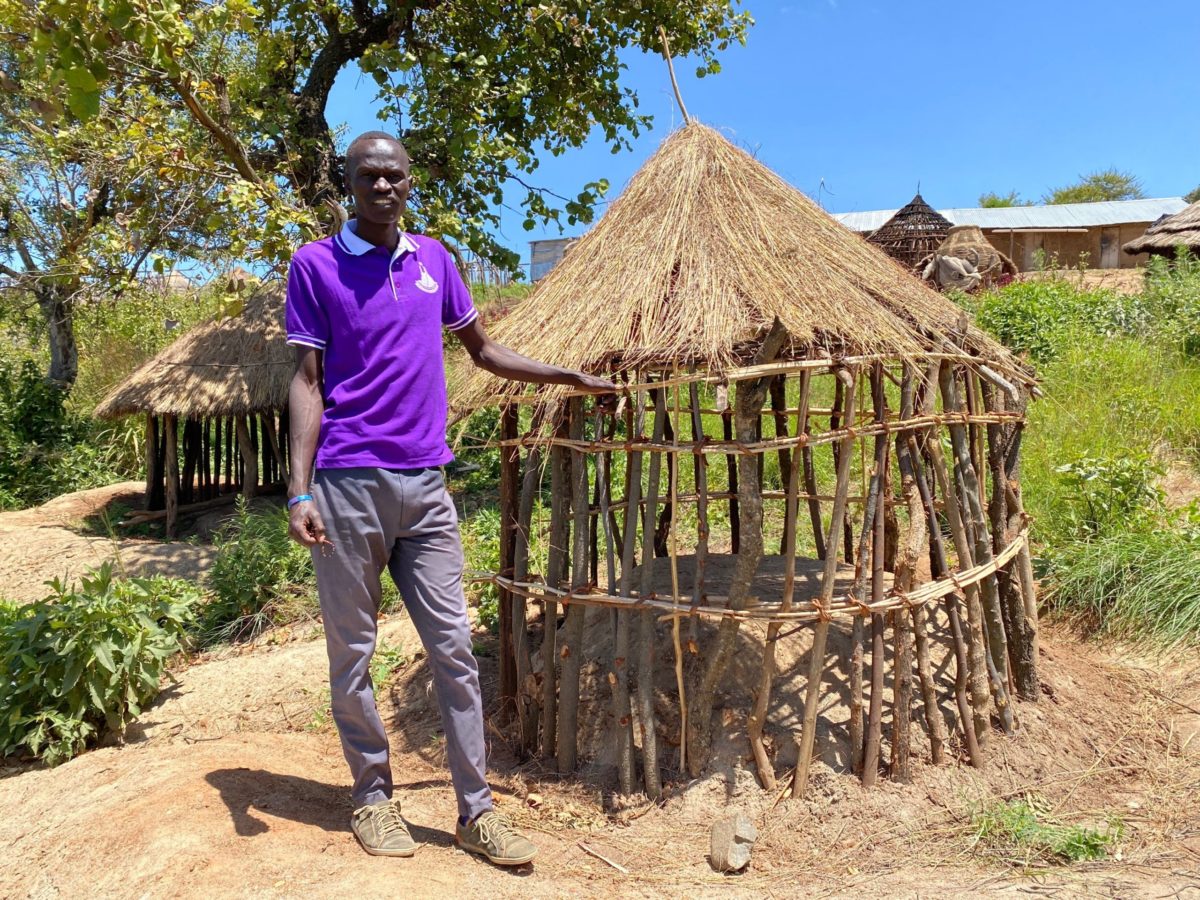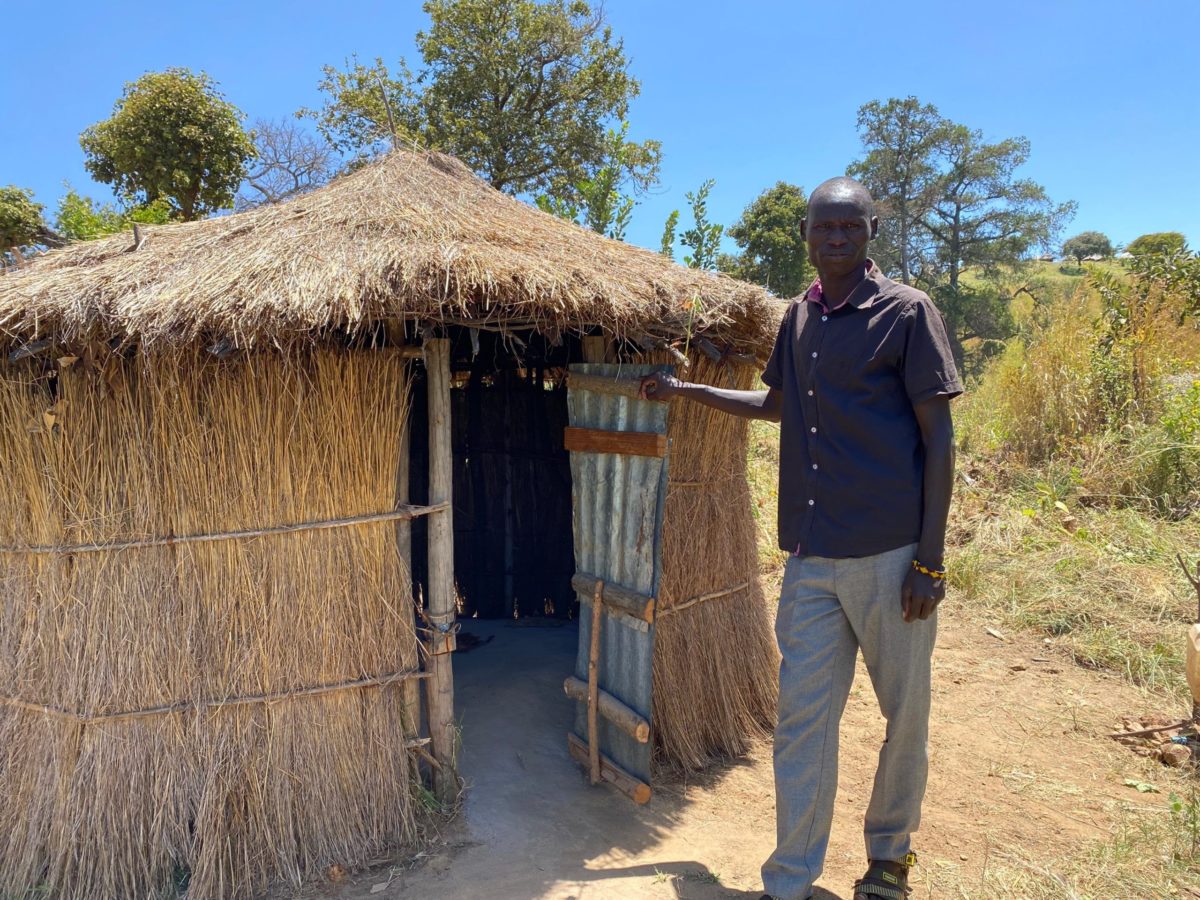 Stories
Stories
November 19, 2022 • 3 min read
This World Toilet Day (19th November) GOAL is committed to ensuring that vulnerable communities have access to the right information on hygiene and sanitation to prevent disease and help save lives.
Sixty-four-year-old Chailla had never used a toilet. Like most people in Lodoi Village, Ik County in northern Uganda, he and his family used nearby bushes to answer nature’s call.
Chailla is an elder in his community of over 160 people, and says that for many years, his family suffered constant outbreaks of diarrhoea. He was unaware that recurring illness was caused by open defecation in the bushes around his home.
“We were unaware of the dangers of using the bushes behind our house. My family had frequent diarrhoea outbreaks because of the faecal matter which was by now smelling all over the home,” he says. “Whenever it rained, it became unbearable.”
Inspired to Make a Change
Things began to change for Chailla and his family when a team from the Karamoja Peace and Development Agency (KAPDA) visited the village. The team held a series of workshops with community members on the importance of proper hygiene and sanitation with support from GOAL under the Sustainable Water, Sanitation and Hygiene (SWASH), funded by Charity: Water.
During the workshops, Chailla learned about the harmful impact of open defecation, as well as hygiene related diseases like cholera and diarrhoea. He was inspired to make a change. The information he received during the workshops empowered and motivated him to start constructing his own latrine (toilet) at home. To lead by example in his community.
“I started by digging the pit, raised the latrine structure, and finally thatched it. I then did the mud walls together with my family,” he says.
“As an elder in my community, I felt the need to make a latrine, and other families are planning to construct theirs. I didn’t want to go back to the regular suffering that my family had experienced.”
Positive Impact in the Community
Other community members soon started emulating what Chailla had done by constructing their own pit latrines, including his neighbour, Alex.
“Chailla is our elder is this village and once I saw him start constructing his pit latrine, I did not want to continue to use the bushes. I started constructing my own latrine,” says 24-year-old Alex.

Alex with his newly constructed latrine.
Another neighbour, 29-year-old Paul, says he was inspired to construct his own pit latrine after seeing what Chailla had done for his family.
“I realised that using the bush was not only endangering me, but my entire community,” he says.
Chailla is proud of his community and wants to ensure that everyone can be as healthy as possible.
“I would like to thank GOAL and KAPDA for bringing this message to my village. I continue to encourage my fellow community members to adopt latrines so that we can be saved from poor health and disease.”

Chailla’s neighbour Paul with his new latrine.
WASH in Uganda
Since 2015, GOAL has worked with over 700 villages in the districts of Bugiri and Namayingo, eastern sub-region. In 2021, more than 174 boreholes were rehabilitated and 594 stand-pump boreholes were constructed. In local schools, over 40 latrine blocks were built, leading to healthier, happier outcomes for children and families. Working together, these communities have since been certified as being Open Defecation Free (ODF).
World Toilet Day
World Toilet Day (19th November) promotes taking action to improve sanitation around the world and to achieve Sustainable Development Goal 6: Water and Sanitation for All by 2030. Today, 3.6 billion people around the world cannot access adequate sanitation facilities, impacting health and polluting the environment.
The World Toilet Day 2022 campaign, with the theme ‘Making the Invisible Visible’, focuses on improving sanitation so that human waste does not spread into rivers, lakes and soil, polluting underground water sources.
